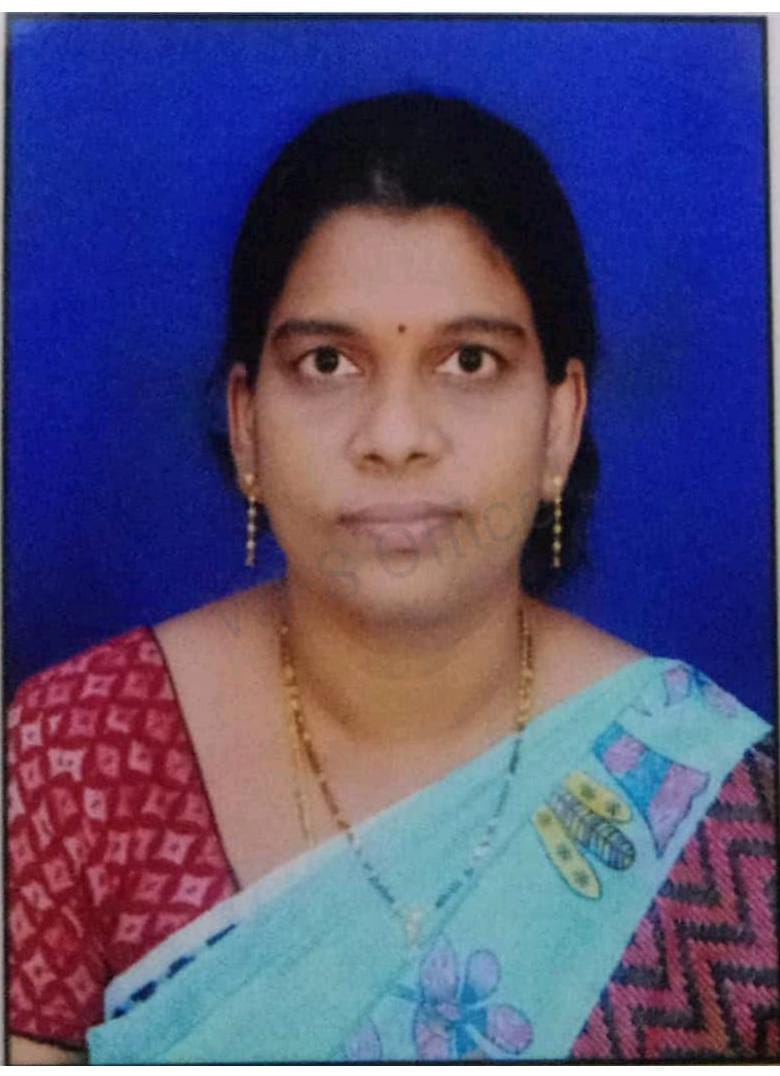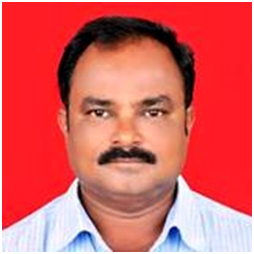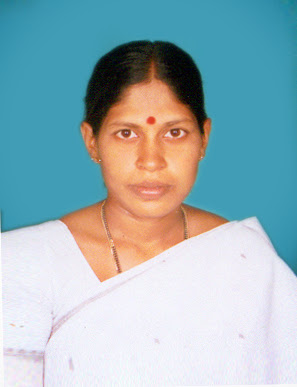About Department
DEPARTMENT OF PHYSICS
The Department of Physics was established in 2001 with MPC Programme.
Eventhough it was started with a part time lecturer Sri. B.Veersanjaneyulu garu, later it was
effectively lead by able headship of Sri. Bh. Subrahmanyeswara Rao garu. The department is
strengthened by introducing one more programme MPCS in 2005.
In order to realise these, the Department of Physics has been putting forward the best
of its efforts with unified contribution from the faculty and the students. The department reputes
unique with high profiled faculty with International & National awards. the pride of the
department is the research background of the faculty and their memberships in various national
and international organisations and also in government bodies.
The department organised a three-day orientation parogramme to NCSC guide teachers
in association with Department of School Education, Krishna Dt., & APCOST in 2021.
Organised National level competitions on the occasion of National Science Day -2022 with the
financial support of "APCOST". International Day for the Preservation of Ozone Layer is also
celebrated in Association with "APCOST and IAPT".
As a result of a continuous striving for excellence by the faculty of science departments,
Physics Club (PAGE – Physics Club of Avanigadda, GDC Striving for Excellence) was
established in 2021 in the college with a goal to achieve sustainable development with a greater
pace. Now the department is flourished with 91 members. 25 memberships from other colleges
and organisations itself indicates the extent of the PAGE. The club is working on e waste
collection once in month in the neighbouring villages along with Avanigadda town. The
Department celebrated energy conservation week with outreach programmes with the support
of PAGE.
Teaching Staff
NAME Designation Qualification Photo Profile Gowri Jyothirmai Contract Lecture M. Sc., M. Phil 
click here Dr. Y.N.Ch.Ravi Babu Lecturer M.Sc (Tech), Ph.D 
click here Dr.P.B.Sandhyasri Lecturer in Physics M.Sc.,B.Ed.,M.Phil.,Ph.D 
click here
Programs Offered
| S.No | Year of Starting | Title of the Program | LEVEL (UG,PG) | Duration (in Years) | Sanctioned Annual Intake |
|---|---|---|---|---|---|
| 1 | 2001 | B.SC (MATHS, PHYSICS, CHEMISTRY) | UG | 3 | 60 |
| 2 | 2005 | B.SC (MATHS, PHYSICS, COMPUTER SCIENCE) | UG | 3 | 50 |
PHYSICS SYLLABUS
CBCS 2015-16 Regulation
SEMESTER
NAME OF THE PAPER
Syllabus
II
SEM II Waves & OScillations
click here
I
MECHANICS & PROPERTIES OF MATTEER
click here
III
SEM III Wave Optics
click here
IV
Paper IV Thermodynamics
click here
V
Paper V Electricity, Magnetism & Electronics
click here
V
Paper VI Modern Physics
click here
V
SEM V, Paper V & VI
click here
VI
SEM VI all Papers
click here
IV
Ele,Mag,MP,INP
click here
VIII
4 Year
click here
CBCS 2020-21 Regulation
SEMESTER
NAME OF THE PAPER
Syllabus
I
Mechanics, Waves & Oscillations
click here
II
Paper II Wave Optics
click here
III
Paper III Heat & Thermodynamics
click here
V
SEM V or VI 6C, 7C
click here
IV
SEM IV , papers IV & V
click here
II
Solar Energy
click here
I
Electrical Appliances
click here
CBCS 2023-24 Regulation
SEMESTER
NAME OF THE PAPER
Syllabus
I
Course-1 Essentials and Applications of Mathematical, Physical andChemical Sciences
click here
I
Principles of Psychology
click here
I
Principles of Physical Sciences
click here
I
Course-1 & Course -2
click here
II
course-3 and course-4
click here
Course Outcomes
Course I: Mechanics,Waves & Oscillations
CO 1:
1. Understand Newton’s laws of motion and motion of variable mass system and its application to rocket motion and the concepts of impact parameter, scattering cross section.
2. Understand postulates of Special theory of relativity and its consequences such as length contraction, time dilation, relativistic mass and mass-energy equivalence.
3. Appreciate the formulation of the problem of coupled oscillations and solve them to obtain normal modes of oscillation and their frequencies in simple mechanical systems.
CO 2:Apply the rotational kinematic relations, the principle and working of gyroscope and its applications and the precessional motion of a freely rotating symmetric top.
CO 3:Comprehend the general characteristics of central forces and the application of Kepler’s laws to describe the motion of planets and satellite in circular orbit through the study of law of Gravitation.
CO 4:Examine phenomena of simple harmonic motion and the distinction between undamped, damped and forced oscillations and the concepts of resonance and quality factor with reference to damped harmonic oscillator.
CO 5:Figure out the formation of harmonics and overtones in a stretched string and acquire the knowledge on Ultrasonic waves, their production and detection and their applications in different fields.
Course II: Wave Optics
CO 1:Understand the phenomenon of interference of light and its formation in (i) Lloyd’s single mirror due to division of wave front and (ii) Thin films, Newton’s rings and Michelson interferometer due to division of amplitude.
CO 2: Distinguish between Fresnel’s diffraction and Fraunhoffer diffraction and observe the diffraction patterns in the case of single slit and the diffraction grating.
CO 3: Describe the construction and working of zone plate and make the comparison of zone plate with convex lens.
CO 4: Explain the various methods of production of plane, circularly and polarized light and their detection and the concept of optical activity.
CO 5: Comprehend the basic principle of laser, the working of He-Ne laser and Ruby lasers and their applications in different fields.
CO 6: Explain about the different aberrations in lenses and discuss the methods of minimizing them.
CO 7: Understand the basic principles of fibre optic communication and explore the field of Holography and Nonlinear optics and their applications.
Course III: Heat & Thermodynamics
CO 1: Understand the basic aspects of kinetic theory of gases, Maxwell-Boltzmann distribution law, equipartition of energies, mean free path of molecular collisions and the transport phenomenon in ideal gases.
CO 2: Gain knowledge on the basic concepts of thermodynamics, the first and the second law of thermodynamics, the basic principles of refrigeration, the concept of entropy, the thermodynamic potentials and their physical interpretations.
CO 3: Understand the working of Carnot’s ideal heat engine, Carnot cycle and its efficiency.
CO 4: Develop critical understanding of concept of Thermodynamic potentials, the formulation of Maxwell’s equations and its applications.
CO 5: Differentiate between principles and methods to produce low temperature and liquefy air and also understand the practical applications of substances at low temperatures.
CO 6: Examine the nature of black body radiations and the basic theories.
Course-IV: ELECTRICITY, MAGNETISM AND ELECTRONICS
CO 1: Understand the Gauss law and its application to obtain electric field in different cases and formulate the relationship between electric displacement vector, electric polarization, Susceptibility, Permittivity and Dielectric constant.
CO 2: Distinguish between the magnetic effect of electric current and electromagnetic induction and apply the related laws in appropriate circumstances.
CO 3: Understand Biot and Savart’s law and Ampere’s circuital law to describe and explain the generation of magnetic fields by electrical currents.
CO 4: Develop an understanding on the unification of electric and magnetic fields and Maxwell’s equations governing electromagnetic waves.
CO 5: Phenomenon of resonance in LCR AC-circuits, sharpness of resonance, Q- factor, Power factor and the comparative study of series and parallel resonant circuits.
CO 6: Describe the operation of p-n junction diodes, Zener diodes, light emitting diodes and transistors.
CO 7: Understand the operation of basic logic gates and universal gates and their truth tables.
Course-VI: MODERN PHYSICS
On successful completion of this course, the students will be able to:
CO 1: Develop an understanding on the concepts of Atomic and Modern Physics, basic elementary quantum mechanics and nuclear physics.
CO 2: Develop critical understanding of concept of Matter waves and Uncertainty principle.
CO 3: Get familiarized with the principles of quantum mechanics and the formulation of Schrodinger wave equation and its applications.
CO 4: Examine the basic properties of nuclei, characteristics of nuclear forces, salient features of nuclear models and different nuclear radiation detectors.
CO 5: Increase the awareness and appreciation of superconductors and their practical applications.
Elective Paper –VII-C: Renewable Energy
On successful completion of the course, the students will be able to attain CO:
CO 1: Understand the need of energy conversion and the various methods of energy storage
CO 2: Explain the field applications of solar energy
CO 3: Identify Winds energy as alternate form of energy and to know how it can be tapped.
CO 4: Explain bio gas generation and its impact on environment.
CO 5: Understand the Geothermal &Tidal energy, its mechanism of production and its Applications.
Elective Paper –VIII-C-1: Solar Thermal and Photovoltaic Aspects
After studying this course, you should be able to:
1.Explain the principles that underlie the ability of various natural phenomena to deliver solar energy.
2.Outline the technologies that are used to harness the power of solar energy.
3.Discuss the positive and negative aspects of solar energy in relation to natural and human aspects of the environment.
Cluster Elective Paper –VIII-C-2: Wind, Hydro and Ocean Energies
On completion of this course, the students will be able to exhibit
CO 1: Conceptual knowledge of the technology, economics and regulation related issues associated with wind and alternative sources of energy.
CO 2: Ability to analyse the viability of wind and alternative energy projects.
CO 3: Capability to integrate various options and assess the business and policy environment regarding wind and alternative energy projects.
CO 4: Advocacy of strategic and policy recommendations on usage of wind and alternative energy.
Program Outcomes
B.Sc MPC
PO 1: This course forms the basis of science for coherent understanding of the academic field to pursue multi and inter-disciplinary science careers in future. (MPC)
PO 2: Able to plan and execute experiments or investigations, analyse and interpret data information collected using appropriate methods (Practical Paper)
PO 3: It helps to develop scientific temper and thus can prove to be more beneficial for the society as the scientific developments can make a nation or society to grow at a rapid pace through research. (Renewable Energy Project)
PO 4: Students can Apply discrete probability distributions. (Survey)
PO 5: Discuss debate and communicate in a clear and logical way, with graduates other fields. (Seminar)
PO 6: Demonstrate skills and competencies to conduct scientific experiments & data analysis.
PO 7: Bachelor of Science offers theoretical as well as practical knowledge about different subject areas.
PO 8: Knowledge acquired through field trips/industrial tours is useful for their job work.
B. Sc MPCS
PO 1: Bachelor of Science offers theoretical as well as practical knowledge about different subject areas.
PO 2: This course forms the basis of science for coherent understanding of the academic field to pursue multi and inter-disciplinary science careers in future. These subject areas include Physics, Chemistry, Mathematics, Computer Science, Acqua culture and Zoology.
PO 3: Able to plan and execute experiments or investigations, analyze and interpret data information collected using appropriate methods.
PO 4: It helps to develop scientific temper and thus can prove to be more beneficial for the society as the scientific developments can make a nation or society to grow at a rapid pace through research.
PO 5: Be able to program fluently in one or two programming languages.
PO 6: Understand the major programming paradigms and be able to learn a new programming language in a fairly short time and understand standard techniques for solving a problem on a computer, including programming techniques and techniques for the representation of information.
PO 7: Understand the basic theory of computer architectures, the nature of operating systems and compilers, software development process, and how information technology affects society, business and the individual.
PO 8: Be able to effectively communicate with persons who are not technically versed in the subject.
Previous/Model Question Papers
| Department | Academic Year | Semester | Subject | Paper | Download File | |||||
|---|---|---|---|---|---|---|---|---|---|---|
| No data available | ||||||||||
Time Table
...
Student Profile
Department Meetings
ACADEMIC YEAR
DEPARTMENT MINUTES
2019-20
click here
2019-20
click here
2020-21
click here
2021-22
click here
Department Activities
No results found for academic year 2023-24.
Results Analysis
Result Analysis
* required field
Student Progression
...
Publications
Research Publications
S.NO
Name of THE TITLE
Author
Journal
Date
PDFData
1
Ultrasonic Studies in the Binary Mixtures of O-Chlorophenol with Salicylates at Different Temperatures
Dr P B Sandhyasri
ORIENTAL JOURNAL OF CHEMISTRY
2023-03-31
click here
Awards/Achievements
0 results
MoUs/Collaborations
List of MoUs
Name of the Institution/ Industry with which MOU is signed
Date of signing MOU
COLLEGE LEVEL/DEPARTMENT LEVEL
Activities under MOU
MoU
Dept. of Physics, GDC for Women, Guntur
2022-08-16
PHYSICS
Syllabus framing for Palakol GDC
click here
Dept.of Physics,ANU,Guntur
2022-04-09
PHYSICS
Ideas,Exposure and Expertise
click here
Nobel College, Machilipatnam
2018-09-19
PHYSICS
Guest Lecture, Faculty exchange, Student live project(ongoing)
click here
The Hindu College, Machilipatnam
2018-09-19
PHYSICS
Guest Lecture, Faculty exchange, Student live project(ongoing)
click here
P.B.Siddartha College, Vijayawada
2021-12-31
PHYSICS
Activity
click here
Best Practices
Best Practices
Name of the Best Practise
Best Practise
Production of Electricity from Plant Pots
click here
Plant Energy
click here
Relavent Links
http://www.apcce.gov.in
http://www.apcce.gov.in
https://scoop.eduncle.com iit-jam-exam
https://cets.apsche.ap.gov.in
articles-cucet-counselling
https://cuap.ac.in/
Gallery





 ...
...
Contact Us
Dr.P.B.SANDHYA SRI
M.Sc., B.Ed., M.Phil., Ph.D
Lecturer in Charge
Department of Physics
phygdcavg@gmail.com
